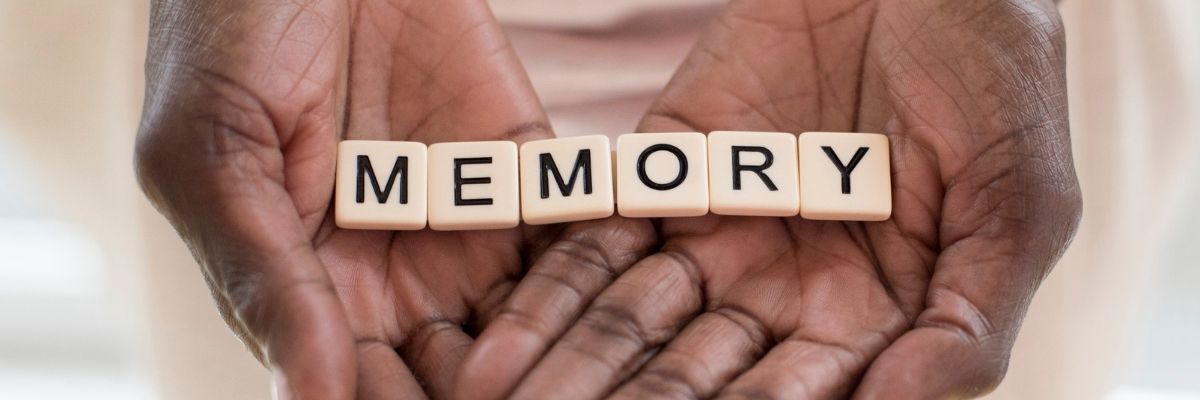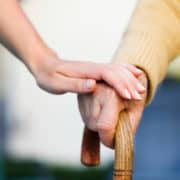Age-related memory loss – key information in a nutshell
Age-related memory loss is a very distressing and often even embarrassing condition for those affected. However, it should not be so, and raising awareness is the weapon of our choice to fight this taboo! Therefore, today we would like to tell you more about the symptoms of age-related memory loss and explain the difference between age-related memory loss and dementia as opposed to simple age-related forgetfulness. We will also try to provide you with some tips on how to care for someone with age-related memory impairment and how to improve memory loss. There’s a lot of information, so sit back with your favourite cup of coffee or tea while we get on with it!
Causes of age-related memory loss
Age-related memory loss is a natural part of the human body’s aging process. There may be various reasons for it. The first reason for age-related memory impairment is that the function of the hippocampus, a centre in the brain involved in making and retrieving memories, often deteriorates with age. Another is that hormones and peptides protecting and restoring brain cells and stimulating neuronal growth also lose efficiency with age. Older people also tend to experience reduced blood flow to the brain, which can impair memory and lead to changes in cognitive performance. There are also three stages of memory impairment, the first manifesting as difficulty in remembering new information, the next involving an inability to store data and the next relating to difficulties in recalling information.
Other causes of memory loss:
- cerebrovascular disease,
- AIDS,
- Parkinson’s or Huntington’s disease,
- normotensive hydrocephalus,
- hypothyroidism,
- vitamin B12 deficiency,
- folic acid deficiency,
- excessive serum calcium levels,
- abuse of alcohol or other psychoactive substances.
Depression and memory loss
Depressive disorders are also another cause of memory impairment among seniors. People suffering from depression often complain about difficulties in memorising and recalling information and impaired cognitive abilities. Depressive memory disorders, however, most often involve short-term memory and are a consequence of problems in concentration. If we cannot focus on something, we are unable to remember it or recall the needed information. Depression and memory loss can go hand in hand thus, this is another issue to keep an eye on and consider when a senior loved one develops memory problems.
The difference between age-related memory loss and dementia
What is the difference between normal age-related forgetting and severe memory problems? Age-related forgetfulness is a normal and natural occurrence, though when severe memory challenges hinder everyday activities such as driving, using the phone or finding your way home, it is high time to see a doctor. The main difference between age-related memory loss and dementia is that memory loss hardly affects daily functioning, is sporadic and causes only minor inconvenience. Whereas, dementia is characterised by a permanent, impairing deterioration of two or more intellectual abilities, such as memory, language, general judgment, or the ability to think abstractly. Occasional memory lapses are a normal part of the aging process for most people, not a warning sign of serious mental deterioration or the onset of dementia, yet be sure to keep an eye out for it.
Symptoms that age-related memory impairment, may be at a stage that requires consultation with a doctor:
- Getting lost in familiar places,
- Problems following rules and instructions,
- Frequently asking the same questions over and over again,
- More frequent confusion about time, people and places,
- Inability to take care of oneself – not washing, not eating properly, or behaving dangerously.
How to improve memory loss?
Deterioration of memory is a normal process that progresses with age, yet it is worth learning to manage it so that it does not impede daily functioning. So, how to improve memory loss? It is helpful to carry out activities that will keep the senior’s mind in good shape, such as learning new skills such as languages or working with a computer, together with a regular mental effort in the form of all kinds of puzzles, jigsaw puzzles or crosswords, reading and socialising. It is also recommended to do mnemonic exercises, which can help improve a senior’s memory. By doing so, the capture and recall of information can be boosted. Mental efforts, performed regularly in combination with a proper diet and regular physical activity will help to achieve satisfactory results quickly. A senior’s daily diet should be enriched with vitamins and minerals that boost brain function and memory, such as vitamin B12 or lecithin. What type of exercise should seniors do? Strolling, yoga or cycling at a moderate pace should be the basis of daily activity of a senior as they enhance both age-related memory loss and mental health.





















